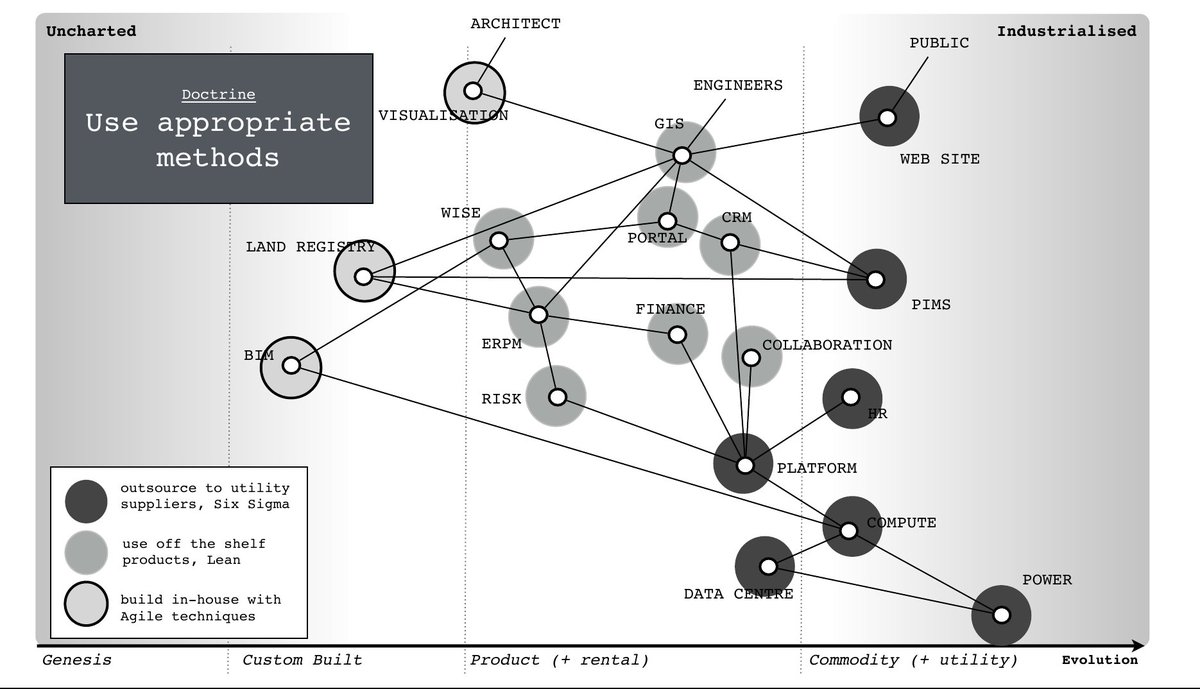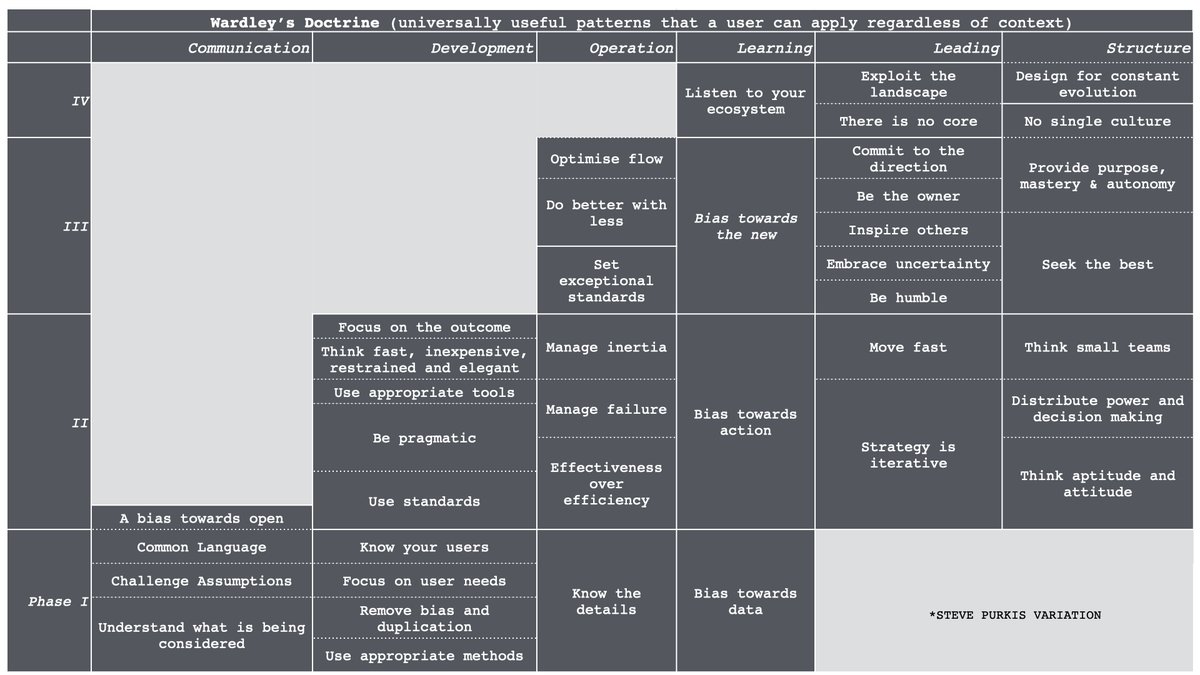
X : Thoughts on getting back into the office?
Me : Go buy a bunch of Double Robotics Teleprescence systems - doublerobotics.com - then people can "zoom" into the robot and you can all bump into each other around the board room.
X : That's ridiculous
Me : Ok ...
Me : Go buy a bunch of Double Robotics Teleprescence systems - doublerobotics.com - then people can "zoom" into the robot and you can all bump into each other around the board room.
X : That's ridiculous
Me : Ok ...

... make sure the CEO gets a gold plated one, so you can re-assert status in your virtual world hybrid.
X : Now, you're being silly.
Me : Ok, ask yourself "Why do we need an office?" and more importantly "Who is pushing for a return to the office and why?"
X : Now, you're being silly.
Me : Ok, ask yourself "Why do we need an office?" and more importantly "Who is pushing for a return to the office and why?"
X : And?
Me : I mentioned this last year. A lot of the push to get back into the office comes from issues related to power - social prescence, status symbols - and not necessarily what is good for people or productivity. I'd focus on supporting people in this remote world.
Me : I mentioned this last year. A lot of the push to get back into the office comes from issues related to power - social prescence, status symbols - and not necessarily what is good for people or productivity. I'd focus on supporting people in this remote world.
X : Do you think this virtual world is permanent.
Me : Too late. Practices have started to emerge which mean the economy is not going back to what it was and you'll have to adapt. Signs of what is emerging can be found from practioner led education to GameStop ...
Me : Too late. Practices have started to emerge which mean the economy is not going back to what it was and you'll have to adapt. Signs of what is emerging can be found from practioner led education to GameStop ...
... which means on a national scale, we need to really push on the support structures and start tackling issues related to inequality. You need to be thinking "When are we implementing UBI" not if.
X : What's the alternative?
Me : Start zoming into robots in the board room until you really realise that "this is silly" rather than just saying it.
Me : Start zoming into robots in the board room until you really realise that "this is silly" rather than just saying it.

X : Some work can't be remote.
Me : There are all sorts of reasons why an office or a factory are needed but last time I looked, I think it was about 70% (in education) to 30% (engineering) of the economy could be done remotely. We have more changes coming e.g. humanless delivery
Me : There are all sorts of reasons why an office or a factory are needed but last time I looked, I think it was about 70% (in education) to 30% (engineering) of the economy could be done remotely. We have more changes coming e.g. humanless delivery
... these changes however are not new, they have been building ... the isolation economy (caused by covid) is simply the accelerant. Many have been caught by the change but it would have happened anyway over a longer time (and companies still would have been caught out) ...
... it's like the economic crash of 2008. Everyone I knew in banking thought a crash was coming, they just expected it to be later i.e. after a few bonuses. That was the real shock. Ditto what's happening. I expect many execs thought the change would happen after they retired.
X : You still need people to build things.
Me : Hmmm. Within 10 years, given the speed at which we're industrialising launchers, ground stations and components in the robotics field ... expect us to start manufacturing in space. You really think it's going to be humans building?
Me : Hmmm. Within 10 years, given the speed at which we're industrialising launchers, ground stations and components in the robotics field ... expect us to start manufacturing in space. You really think it's going to be humans building?
X : 10 years?
Me : To start. Then another 20-30 years to become more commodity like and another 10-15 years to become the norm for new components. 55 years roughly. There are many people born today who will witness the decline of terrestrial manufacturing.
Me : To start. Then another 20-30 years to become more commodity like and another 10-15 years to become the norm for new components. 55 years roughly. There are many people born today who will witness the decline of terrestrial manufacturing.
X : That's a long timeline.
Me : Not if you're a Government. Things like HS2 (high speed rail) have to think about 80 year timeframes. Nae man can tether time or tide. Things will change.
Me : Not if you're a Government. Things like HS2 (high speed rail) have to think about 80 year timeframes. Nae man can tether time or tide. Things will change.
X : Humanless delivery?
Me : Yep. We're already on that path i.e. from NoPilot nopilot.ai to Amazon Scout cambridgeindependent.co.uk/business/cambr…
Me : Yep. We're already on that path i.e. from NoPilot nopilot.ai to Amazon Scout cambridgeindependent.co.uk/business/cambr…
X : Space Factories?
Me : Yep, the components are getting there. The whole space of space will just heat up and there will be some friction - mining.com/experts-warn-o…
Me : Yep, the components are getting there. The whole space of space will just heat up and there will be some friction - mining.com/experts-warn-o…
X : Components?
Me : Launchers, Ground Stations, Robotic OS, ML Engines, Sensors (including LIDAR) ... you need a whole bunch of things to industrialise and that's going on.
X : How do you know this?
Me : You can't predict the future with certainty but try mapping.
Me : Launchers, Ground Stations, Robotic OS, ML Engines, Sensors (including LIDAR) ... you need a whole bunch of things to industrialise and that's going on.
X : How do you know this?
Me : You can't predict the future with certainty but try mapping.
X : How can you know?
Me : The future? You can't but you can cheat a bit.
X : Explain.
Me : There are four things to consider - the known known, the known unknown, the unknown unknown and the largest impact of all ... the unknown known.
X : The unknown known?
Me : Yep ...
Me : The future? You can't but you can cheat a bit.
X : Explain.
Me : There are four things to consider - the known known, the known unknown, the unknown unknown and the largest impact of all ... the unknown known.
X : The unknown known?
Me : Yep ...
... the things we don't know that we actually do know ... normally because we can't tie the pieces together.
X : Example.
Me : Alphafold. For me, a classic example of the unknown known, it was all there we just didn't know how to put it together. Brilliant stuff btw.
X : Example.
Me : Alphafold. For me, a classic example of the unknown known, it was all there we just didn't know how to put it together. Brilliant stuff btw.
X : Why the largest impact?
Me : It's everywhere. The are so many things which we have all the pieces for but we just can't tie them together. There is going to be a lot of interesting work in that space.
X : So, what has this got to do with predicting the future?
Me : It's everywhere. The are so many things which we have all the pieces for but we just can't tie them together. There is going to be a lot of interesting work in that space.
X : So, what has this got to do with predicting the future?
Me : Ah, it's amazing when you map, how people put different components into play and someone goes ... "hang on, given this then ..."
Happens all the time, usually followed by "God that was obvious, why didn't we see it". Communication, challenge and diversity works wonders.
Happens all the time, usually followed by "God that was obvious, why didn't we see it". Communication, challenge and diversity works wonders.
• • •
Missing some Tweet in this thread? You can try to
force a refresh






